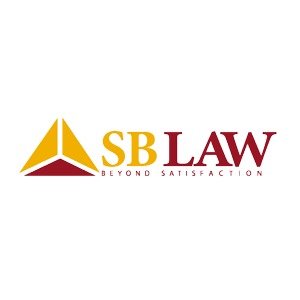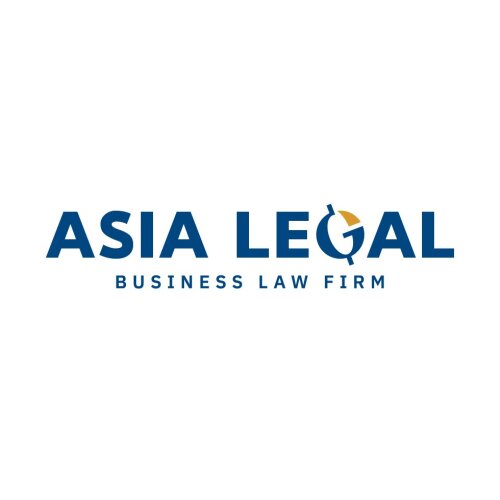Best Debt & Collection Lawyers in Hanoi
Share your needs with us, get contacted by law firms.
Free. Takes 2 min.
List of the best lawyers in Hanoi, Vietnam
About Debt & Collection Law in Hanoi, Vietnam
Debt & Collection law in Hanoi, Vietnam governs the legal framework for resolving disputes related to debt collection. It provides guidelines and procedures for creditors and debtors to follow when dealing with issues such as unpaid loans, unpaid bills, or other outstanding debts. Understanding the Debt & Collection law is crucial for protecting your rights and ensuring fair treatment in debt-related matters.
Why You May Need a Lawyer
There are several common situations where seeking legal help in Debt & Collection matters is advisable:
- If you are being harassed or threatened by a debt collector
- If you have received a court summons or legal notice regarding a debt
- If you are unsure about your rights and obligations as a debtor or creditor
- If you are facing financial difficulties and need advice on debt management or negotiation
- If you need assistance in drafting or reviewing debt-related legal documents
Local Laws Overview
In Hanoi, Vietnam, several key aspects of local laws are particularly relevant to Debt & Collection:
- Civil Code: The Civil Code provides the legal basis for debt collection and outlines the rights and obligations of debtors and creditors.
- Enforcement of Civil Judgments: The procedures for enforcing civil judgments involve court oversight and may include asset seizure and wage garnishment to satisfy outstanding debts.
- Consumer Protection Law: This law aims to protect consumers' rights and regulate debt collection practices, with provisions against harassment, deception, or unfair treatment by debt collectors.
- Bankruptcy Law: In cases of severe financial distress, the Bankruptcy Law governs the procedures for debt discharge or debt reorganization.
Frequently Asked Questions
Q: Can I be imprisoned for unpaid debts in Hanoi, Vietnam?
A: No, you cannot be imprisoned solely for unpaid debts in Hanoi, Vietnam. Imprisonment is not a legal consequence of debt default.
Q: What should I do if I am being harassed by a debt collector?
A: If you are being harassed by a debt collector, you should document the instances of harassment, including dates, times, and details of the communication. Report the harassment to local authorities and consider seeking legal advice to protect your rights.
Q: Can a debt collector seize my property without a court order?
A: No, a debt collector cannot seize your property without a court order in Hanoi, Vietnam. Any seizure of assets must be authorized by a court and follow the prescribed legal procedures.
Q: What are my rights as a debtor under Hanoi's debt collection laws?
A: As a debtor in Hanoi, Vietnam, you have rights that include protection against harassment, the right to dispute the debt, the right to receive accurate and clear information regarding the debt, and the right to be treated fairly under the law. Seek legal advice for a comprehensive understanding of your specific rights.
Q: Can I negotiate the terms of my debt repayment in Hanoi, Vietnam?
A: Yes, you can negotiate the terms of your debt repayment in Hanoi, Vietnam. It is advisable to seek legal advice to understand your negotiating position and ensure that any agreements reached are legally enforceable.
Additional Resources
For further information and assistance, consider referring to the following resources, governmental bodies, or organizations:
- Consumer Protection Association of Hanoi (CPAH)
- Hanoi Bar Association
- Ministry of Justice of Vietnam
- Vietnam Chamber of Commerce and Industry (VCCI)
Next Steps
If you require legal assistance in Debt & Collection matters in Hanoi, Vietnam, the following steps can be helpful:
- Research and select a reputable law firm or lawyer experienced in Debt & Collection law.
- Set up an initial consultation to discuss your specific situation and obtain advice.
- Provide all relevant documentation and information to your lawyer.
- Follow your lawyer's guidance regarding further legal actions, negotiation, or dispute resolution methods.
- Regularly communicate with your lawyer and stay informed about the progress of your case.
Lawzana helps you find the best lawyers and law firms in Hanoi through a curated and pre-screened list of qualified legal professionals. Our platform offers rankings and detailed profiles of attorneys and law firms, allowing you to compare based on practice areas, including Debt & Collection, experience, and client feedback.
Each profile includes a description of the firm's areas of practice, client reviews, team members and partners, year of establishment, spoken languages, office locations, contact information, social media presence, and any published articles or resources. Most firms on our platform speak English and are experienced in both local and international legal matters.
Get a quote from top-rated law firms in Hanoi, Vietnam — quickly, securely, and without unnecessary hassle.
Disclaimer:
The information provided on this page is for general informational purposes only and does not constitute legal advice. While we strive to ensure the accuracy and relevance of the content, legal information may change over time, and interpretations of the law can vary. You should always consult with a qualified legal professional for advice specific to your situation.
We disclaim all liability for actions taken or not taken based on the content of this page. If you believe any information is incorrect or outdated, please contact us, and we will review and update it where appropriate.















